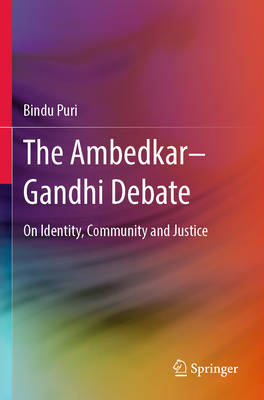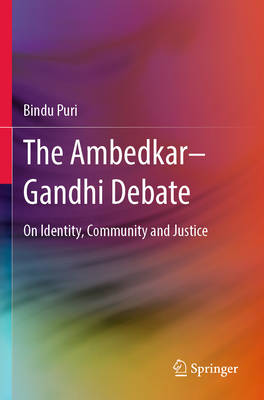
- Afhalen na 1 uur in een winkel met voorraad
- Gratis thuislevering in België
- Ruim aanbod met 7 miljoen producten
- Afhalen na 1 uur in een winkel met voorraad
- Gratis thuislevering in België
- Ruim aanbod met 7 miljoen producten
Omschrijving
This book reconstructs the philosophical issues informing the debate between the makers of modern India: Ambedkar and Gandhi. At one level, this debate was about a set of different but interconnected issues: caste and social hierarchies, untouchability, Hinduism, conversion, temple entry, and political separatism. The introduction to this book provides a brief overview of the engagements and conflicts in Gandhi and Ambedkar's central arguments. However, at another level, this book argues that the debate can be philosophically re-interpreted as raising their differences on the following issues:
- The nature of the self,
- The relationship between the individual self and the community,
- The appropriate relationship between the constitutive encumbrances of the self and a conception of justice,
- The relationship between memory, tradition, and self-identity.
Ambedkar and Gandhi's contrary conceptions of the self, history, itihaas, community and justice unpack incommensurable world views. These can be properly articulated only as very different answers to questions about the relationship between the present and the past. This book raises these questions and also establishes the link between the Ambedkar--Gandhi debate in the early 20th century and its re-interpretation as it resonates in the imagination and writing of marginalized social groups in the present times.
Specificaties
Betrokkenen
- Auteur(s):
- Uitgeverij:
Inhoud
- Aantal bladzijden:
- 266
- Taal:
- Engels
Eigenschappen
- Productcode (EAN):
- 9789811686887
- Verschijningsdatum:
- 24/02/2023
- Uitvoering:
- Paperback
- Formaat:
- Trade paperback (VS)
- Afmetingen:
- 156 mm x 234 mm
- Gewicht:
- 399 g

Alleen bij Standaard Boekhandel
Beoordelingen
We publiceren alleen reviews die voldoen aan de voorwaarden voor reviews. Bekijk onze voorwaarden voor reviews.












